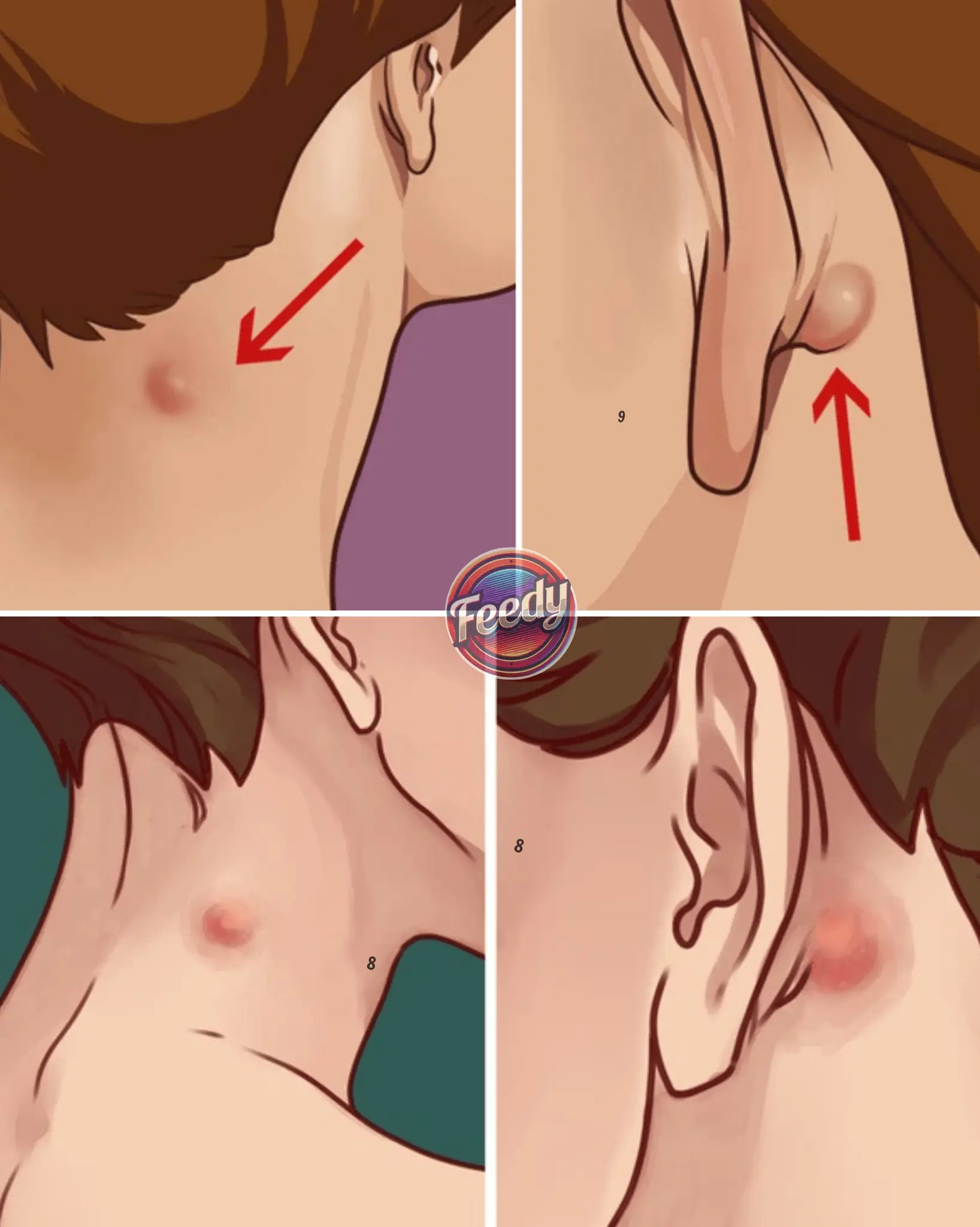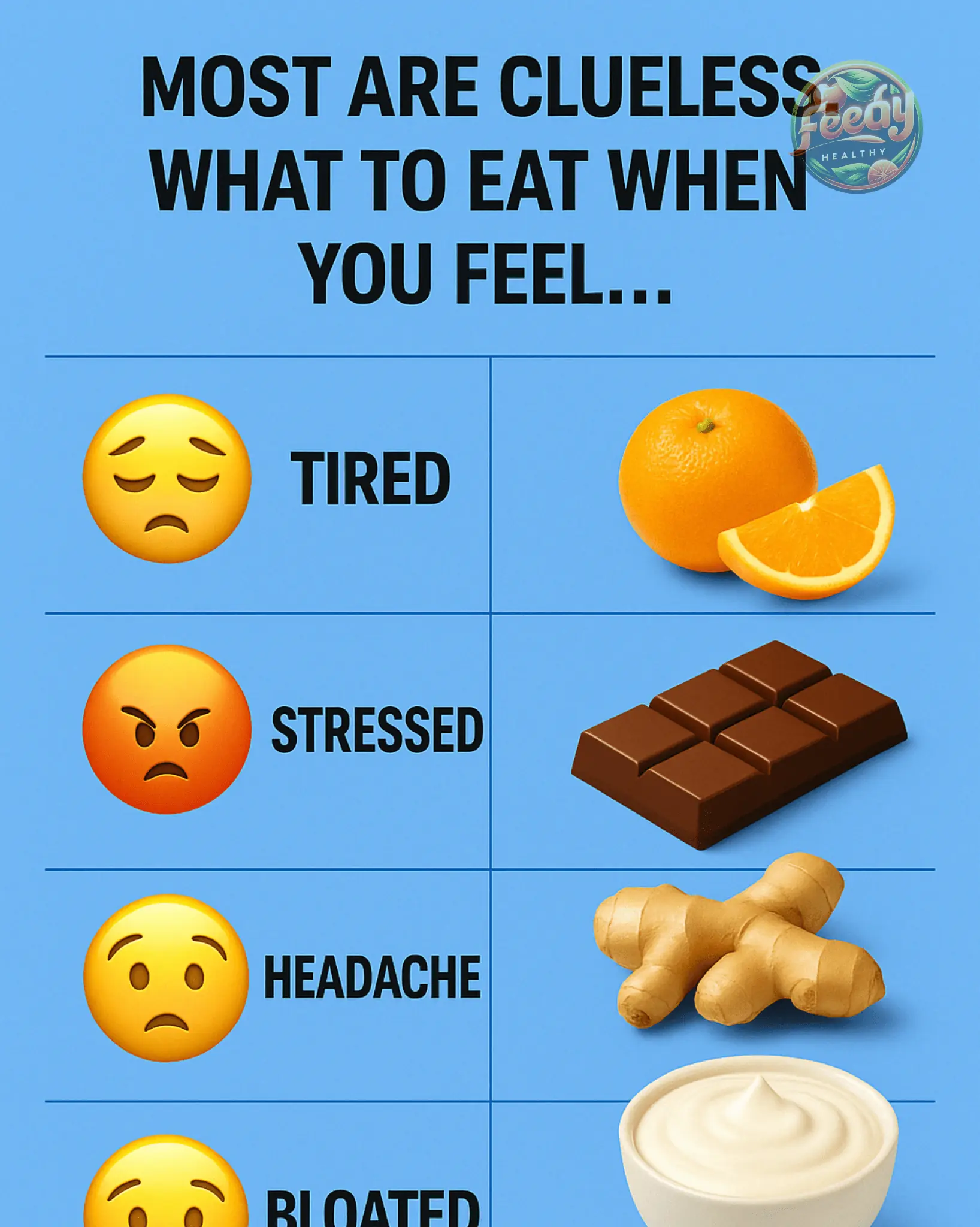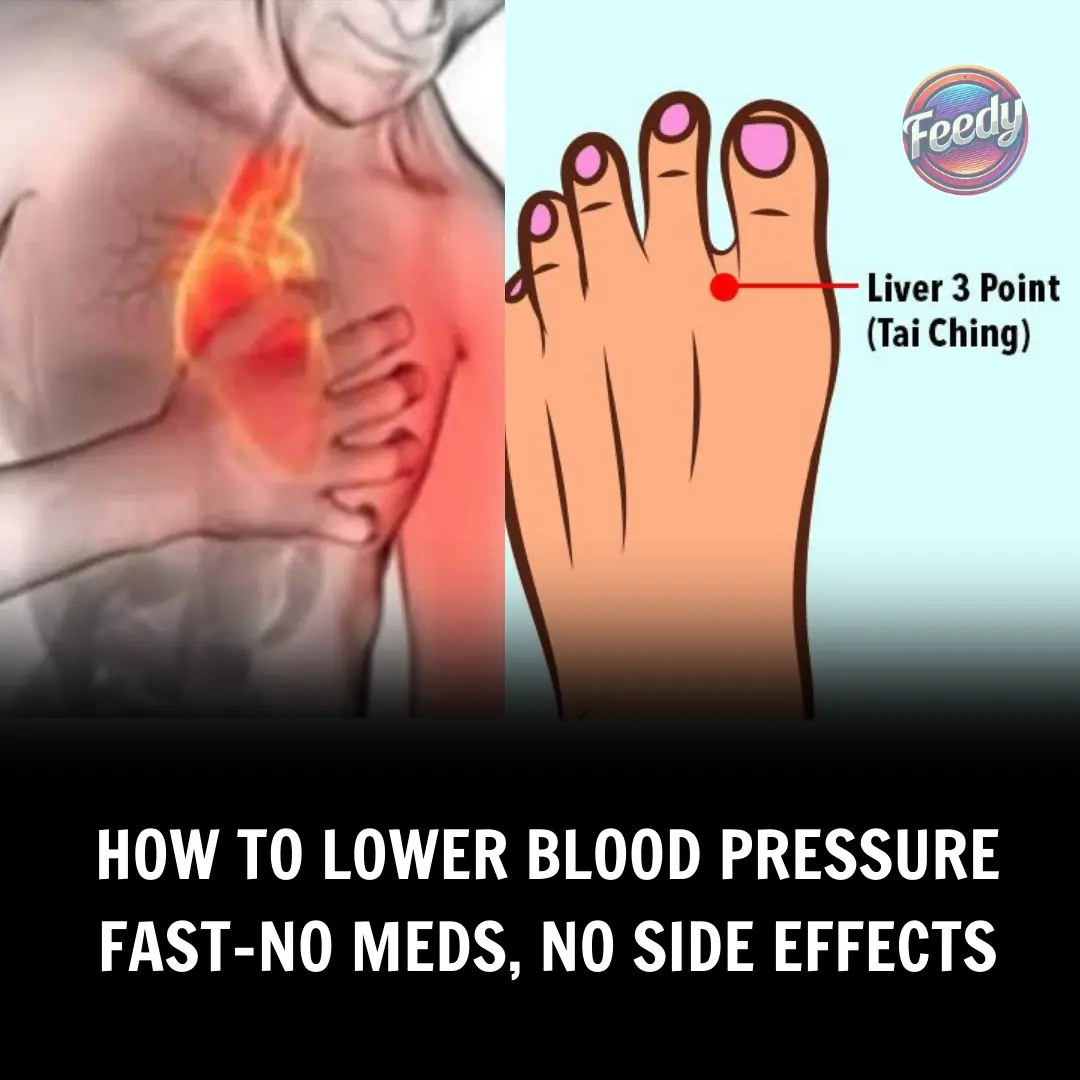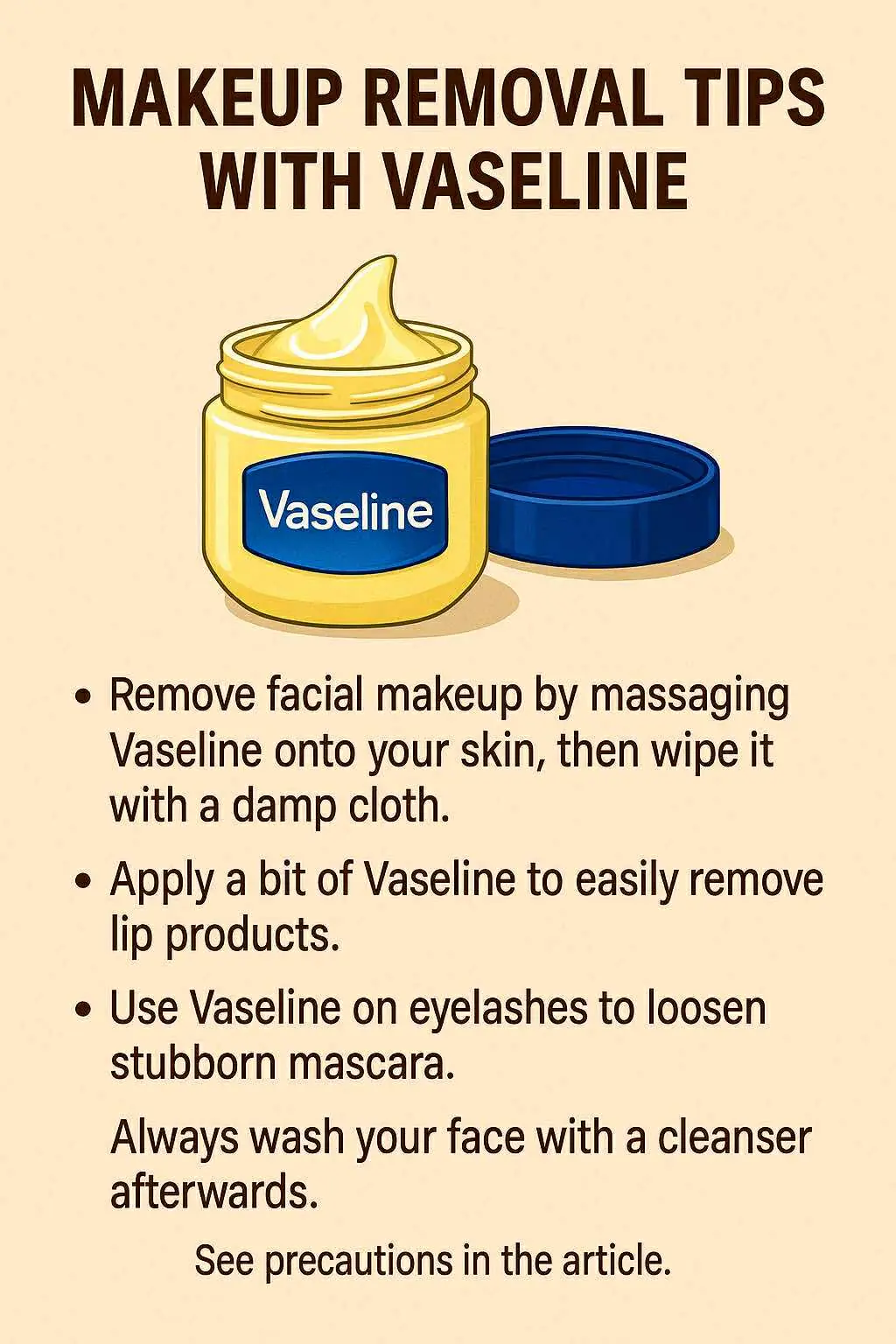
What That Swollen Lump Near Your Neck or Ear Really Means – And When to Worry

Discovering a lump or swollen bump on your neck, behind your ears, or along your jawline can be alarming. Your mind may jump to the worst-case scenario, but take a deep breath—these lumps are often just enlarged lymph nodes, a natural response from your immune system.
While most of these swellings are harmless and temporary, understanding what’s going on in your body can help ease your worries and guide you to the right care when needed. Let’s break it down.
What Are Lymph Nodes and Why Do They Swell?
Lymph nodes are small, bean-shaped glands found throughout your body—in your neck, armpits, groin, under the jaw, and behind the ears. They act as filters for harmful substances and play a key role in defending your body against illness.
Normally, you don’t notice them. But when they swell, it means your immune system is on high alert—fighting off bacteria, viruses, or other invaders.
What Causes Swollen Lymph Nodes?
Here are the most common culprits:
1. Infections
The number one reason for swollen nodes is infection. Whether it’s a mild cold or something more serious like strep throat, your body activates the lymph nodes to filter out harmful pathogens.
2. Ear Infections
If the swelling is behind or near the ear, an ear infection might be the cause. This is especially common in children but can affect adults too, often accompanied by fever and discomfort.
3. Local Injuries or Inflammation
Even minor injuries, like a cut or irritation near the area, can trigger lymph node swelling as your body kicks into healing mode.
4. Allergic Reactions
Your immune system might also respond to allergens—such as certain foods, medications, or environmental triggers—by enlarging lymph nodes.
5. Autoimmune Conditions
Chronic inflammatory diseases like lupus or rheumatoid arthritis can cause persistent swelling in multiple nodes throughout the body.
6. Cancer (Rare, But Important)
While uncommon, swollen lymph nodes can sometimes indicate lymphoma or cancers that have spread. These require prompt medical attention.
When Should You Be Concerned?
Swollen lymph nodes often go away on their own. But see a doctor if:
-
The swelling lasts more than 2-3 weeks
-
The lump is hard, fixed, or getting larger
-
You have other symptoms: fever, night sweats, fatigue, or unexplained weight loss
-
You have a history of cancer or autoimmune disease
-
The lump is painful or appears infected
These could signal something more serious needing medical evaluation.
How to Relieve and Treat Swollen Lymph Nodes
For mild, infection-related swelling, try these home remedies:
✅ Warm compress: Apply a warm, damp cloth to the area for 10–15 minutes a few times a day to ease discomfort and improve circulation.
✅ Pain relief: Use over-the-counter medications like ibuprofen or acetaminophen for pain or inflammation.
✅ Rest & hydration: Give your immune system time and support to fight off the infection.
When Medications Are Needed
If a bacterial infection is the cause, your doctor may prescribe antibiotics. For viral infections, antiviral medications may help in more severe cases.
In rare instances where cancer or autoimmune disease is involved, early diagnosis and medical management are essential.
Bottom Line
That lump on your neck or near your ear might be unsettling—but it’s often your body doing its job. Still, staying informed and knowing the warning signs can make all the difference.
If something feels off or isn’t going away, trust your instincts and talk to a healthcare provider. Your peace of mind—and health—are worth it.
News in the same category


You are doing it all wrong. Here's how to drink 8 glasses of water each day

Most are clueless. What to eat when you feel

Boil Ginger, Sip the Benefits: A Simple Drink That Transforms Your Health

Eat one sweet potato a day – and your liver, heart, and stomach will silently thank you.

Harvard Doctor Recommends 4 Simple Food Swaps to Lower Cancer Risk

20 Reasons Why You Should Collect Dandelion Flowers Until Your Fingers Are Stained Yellow

Discover the Healing Power of Plantain

To prevent stroke, remember these "3 don’ts" after meals and "4 don’ts" before bedtime

95-Year-Old Chinese Doctor Reveals His Secret to Staying Young and Healthy: Cucumber, Lemon, and Ginger!

The Amazing Benefits of Castor Oil and Epsom Salt Combined

7 Powerful Leaves That Can Lower Diabetes, Blood Pressure, and Boost Your Health

10 Natural Ways to Lower High Blood Pressure Without Medication

15 Surprising Foods You Can Microwave

13 Foods That Naturally Eliminate Parasites from Your Gut – Eat Smart, Clean Inside

Lime, Garlic, Turmeric & Ginger: The Ultimate Natural Booster for Men’s Health

The Simple Drink a 95-Year-Old Chinese Doctor Swears By for a Youthful Body

Liver and Blood Cleanser – A Natural Juice to Detox Your Liver and Purify Your Blood

4 Soothing Bedtime Drinks for Better Sleep, Less Stress & Natural Beauty
News Post

ABC Cubes For Flawless Skin

Scientists Grow First Fully Formed Tooth In Lab — A Groundbreaking Breakthrough

Fermented Rice Water & Cloves Scalp Treatment

Top 10 Hydrating Serums for Dry Skin Trusted by Experts and Beauty Enthusiasts

Amazing uses of vaseline for skin

Unlock the Power of Vaseline: 16 Beauty Benefits & Smart Precautions

WE SENT MONEY FOR OUR SON TO PAY FOR COLLEGE – ONE DAY, WE DISCOVERED HE WASN’T EVEN ENROLLED AND WAS LIVING IN AN OLD TRAILER.

5 Baking Soda Uses for Face & Skin – Natural Beauty Secrets You Shouldn’t Miss

20 Great Uses of Vaseline Which You Probably Don’t Know

Unlock the power of Vaseline & Lemon

✨ Castor Oil Home Remedies: Unlock the Power of Nature for Your Beauty Routine ✨

I WAS THE ONLY ONE WHO ATTENDED MY GRANDMOTHER’S BIRTHDAY LUNCH – AFTER SEEING HER TEARS, I DECIDED TO TEACH MY FAMILY A LESSON

The Best Ways to Use Vaseline: A Complete Guide for Beauty & Skincare

Rub This Slice On Face To Get Spotless Skin

My Husband’s Cousin Came to Stay with Us Temporarily with Her Son – If Only I Had Known It Was All a Trap.

Restaurant Owner Disguises Himself as a Homeless Man to Choose His Heir.

Vaseline Makeup Removal Tips Not Everyone Knows

The Hidden Meaning Behind Wearing an Ankle Bracelet—Most People Have No Idea

Disturbing Post Surfaces From FSU Shooter Just Before Campus Tragedy
